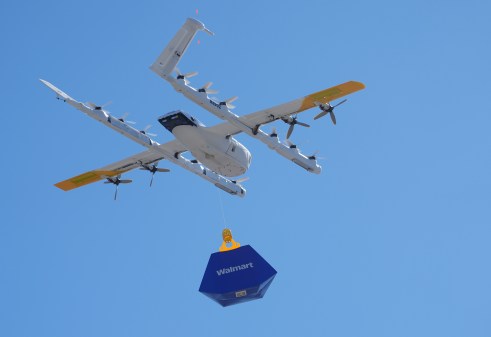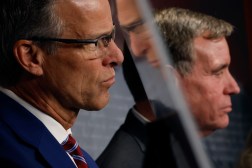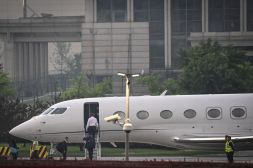New drone for Christmas? You must register before flying — FAA

Source: iStockPhoto
Unwrapping a shiny new drone weighing more than half a pound this holiday season? The Federal Aviation Administration says you must register it on their new website before taking to the sky.
Starting Dec. 21, the pilots of all new unmanned aerial systems will have to use the FAA’s new “streamlined and user-friendly web-based aircraft registration process” to register UAS weighing between 0.55 and 55 pounds before their first flight, the agency announced Monday. The registration cost is $5, but to encourage drone owners to register as quickly as possible, the FAA will waive the fee for registrants until Jan. 20.
Owners who’ve flown their drones prior to the Dec. 21 start date will have until Feb. 19, 2016, to register them. Failure to register a drone could result in civil penalties up to $27,500, the new rule says, and criminal fines run up to $250,000 or three years jail time.
The new registration process, recommended by the FAA’s UAS Registration Task Force at a Nov. 21 meeting, comes as the FAA tries to manage the explosive growth of recreational and hobbyist drone use and keep the national air space secure and accident-free. In 2014 the FAA received 238 reports of unsafe UAS operation with only about 200,000 drones in operation; in the fourth quarter of 2015 alone, the agency expects consumers will launch about 800,000 new small drones into the national air space.
According to the rule, “There is good reason to believe that the numbers of incidents will continue to rise substantially with the projected rapid rise in UAS sales in the coming months.”
“Make no mistake: unmanned aircraft enthusiast are aviators, and with that title comes a great deal of responsibility,” Transportation Department Secretary Anthony Foxx said. “Registration gives us an opportunity to work with these users to operate their unmanned aircraft safely. I’m excited to welcome these new aviators into the culture of safety and responsibility that defines American innovation.”
The task force sought to make the registration process as easy and attractive as possible — “to ensure accountability by creating a traceable link between aircraft and owner, and to encourage the maximum levels of regulatory compliance by making the registration process as simple as possible,” according to a report from the meeting. In three easy steps, consumer can complete the registration and receive a certificate on the new website within minutes.
A prior FAA statute required owners to register their aircraft via a weeks-long paper form process before flight. But given the number of expected new owners, many of whom think of their UAS as more of a toy than an aircraft, the new Web-based registration process will be better fit to take on any surge in registration demand. It will also save the government $327 million in theoretical paper-based processing fees. The new system will cost about $56 million, the rulemaking says.
Ultimately, it’s an effort to engage novice users about drone safety.
“Registration gives us the opportunity to educate these new airspace users before they fly so they know the airspace rules and understand they are accountable to the public for flying responsibly,” FAA Administrator Michael Huerta said.
Some, though, worry that charging a $5 fee —particularly when the task force recommended the registration be free, or no more than one-tenth of one cent if a fee was required — along with the sharing of personal information electronically, will discourage users from registering and thereby lose that opportunity to educate them.
Requiring hobbyists to pull out a credit card and pay the $5 fee “is going to create a question as to whether consumers will engage,” said Mike Drobac, senior advisor to the law firm Akin Gump. “It will fall back on industry to continue to promote safety and security…When you’re dealing with a $5 fee and giving your email address,” that could turn users away, he said. “I don’t feel this was handled in the way that everyone thought it would be.”
Likewise, Douglas Johnson, vice president of technology policy of the Consumer Technology Association, said in a statement that he worries the fees will “hamper registration and discourage compliance.”
And as many of the drones consumers are buying cost between $50 and $100, the registration fee becomes almost more like a hefty “drone tax,” Alan McQuinn, a research assistant with the Information Technology & Innovation Foundation, told FedScoop. “It is likely that some hobbyists will simply ignore the plan altogether.”
Contact the reporter on this story at Billy.Mitchell@fedscoop.com. Follow him on Twitter @BillyMitchell89.






